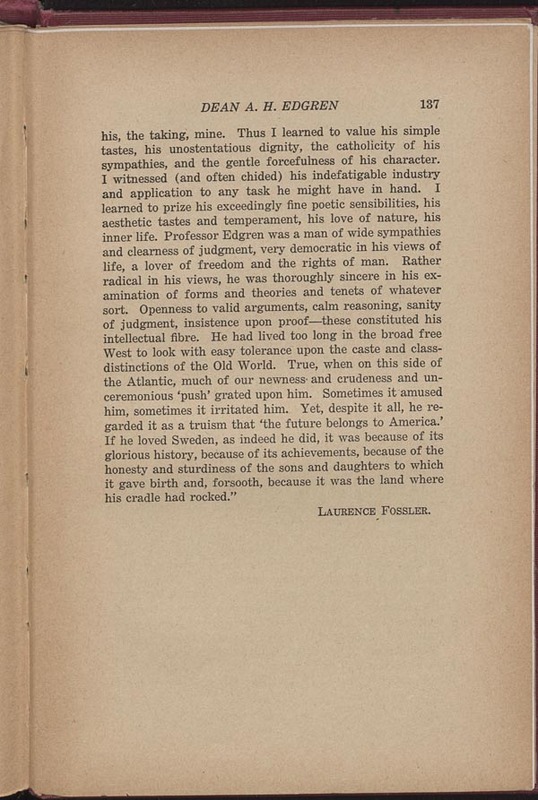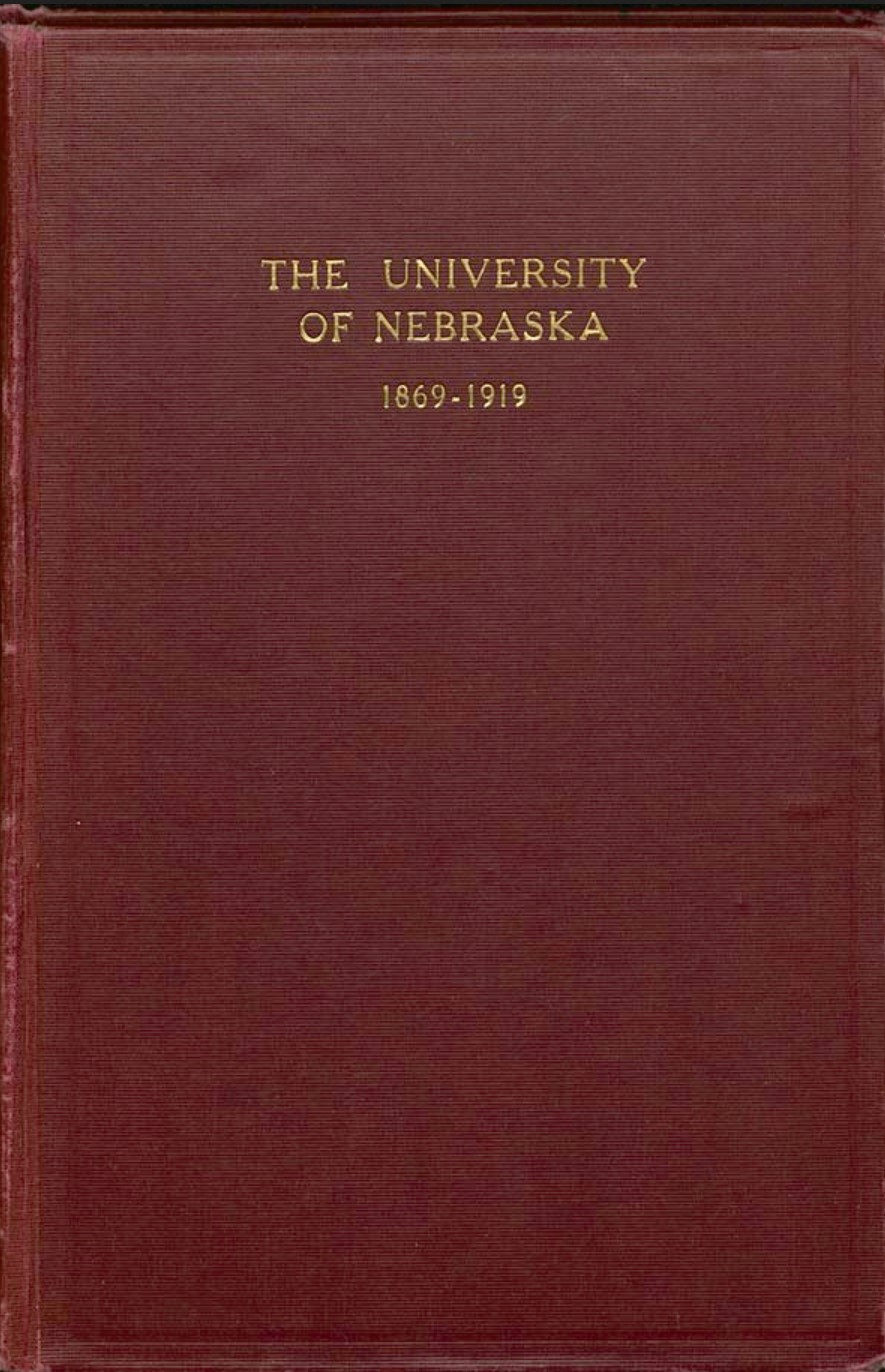149
Item
-
Title
-
149
-
Description
-
Semi-Centennial Anniversary Book: The University of Nebraska, 1869-1919
-
Transcription
-
his, the taking, mine. Thus I learned to value his simple tastes, his unostentatious dignity, the catholicity of his sympathies, and the gentle forcefulness of his character. I witnessed (and often chided) his indefatigable industry and application to any task he might have in hand. I leaned to prize his exceedingly fine poetic sensibilities, his aesthetic tastes and temperament, his love of nature, his inner life. Professor Edgren was a man of wide sympathies and clearness of judgment, very democratic in his views of life, a lover of freedom and the rights of man. Rather radical in his views, he was thoroughly sincere in his examination of forms and theories and tenets of whatever sort. Openness to valid arguments, calm reasoning, sanity of judgment, insistence upon proof—these constituted his intellectual fibre. He had lived too long in the broad free West to look with easy tolerance upon the caste and class-distinctions of the Old World. True, when on this side of the Atlantic, much of our newness and crudeness and unceremonious 'push' grated upon him. Sometimes it amused him, sometimes it irritated him. Yet, despite it all, he regarded it as a truism that 'the future belongs to America.' If he loved Sweden, as indeed he did, it was because of its glorious history, because of its achievements, because of the honesty and sturdiness of the sons and daughters to which it gave birth and, forsooth, because it was the land where his cradle had rocked."
LAURENCE FOSSLER.
-
Rights
-
To inquire about usage, please contact Archives & Special Collections, University of Nebraska-Lincoln Libraries. These images are for educational use only. Not all images are available for publication.



